comedy in video game design
Can video games ever be funny?

Ever been tickled by a video game? Humour is rare in the world of shoot-em-ups and magical quests, but games that play for laughs are emerging, says Simon Parkin. Can they make you chuckle?
V
Video games offer much in the way of entertainment, but there's one thing they have long failed to do: tickle the funny bone.
Yet a few games have emerged recently in which comedy is the primary focus or, at very least, the primary tone. And others contain humour that the designers never intended. So, can they actually make us laugh?
If the power of a joke is in its telling, small wonder video games have a reputation for being unfunny. Humour is difficult to design into games. It's too easy for the player to mess up the timing of it all, to be looking the wrong way when the punch line is delivered or to switch off the game just before a carefully plotted gag. Moreover, video games tend to be obsessed with triumph and victory, with overcoming the odds and averting tragedy – a typically unhelpful destination for any comedy vehicle.
That hasn't stopped some designers aiming for laughs recently though. One game launched this year that employs humour as a main selling point is Octodad: Dadliest Catch. The premise itself is humorous: manoeuvre the protagonist through increasingly complex challenges while attempting to hide the fact that he is a cephalopod in human clothing. But the game's funniest moments come from its slapstick. Octodad is incredibly difficult to control; his limbs wobble and fling off in wild directions, leading to absurd scenes in which you attempt to apply make-up in the mirror, or place a wedding ring on your bride's finger.
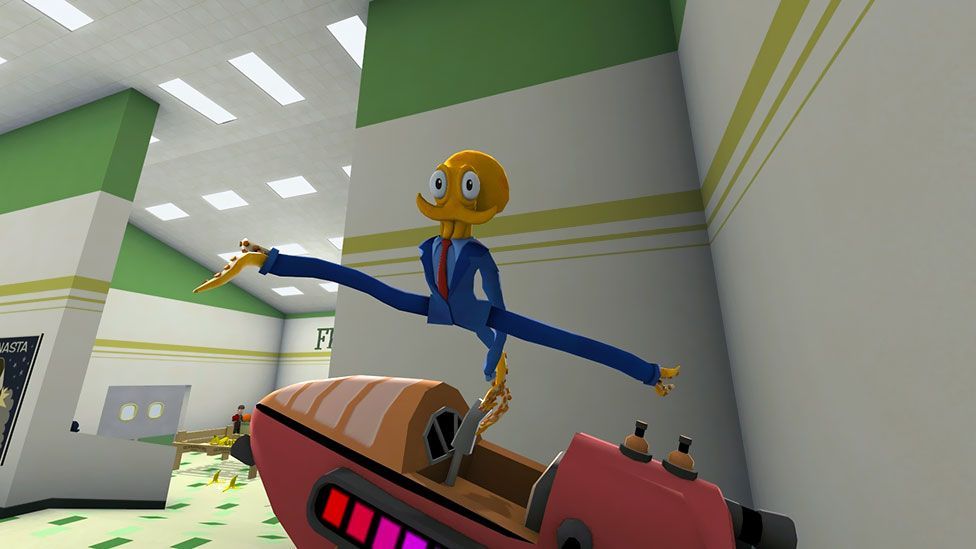
In Octodad: Dadliest Catch, you play a cephalopod in human clothes that blunders through a digital world - it's a form of slapstick (DePaul University Students)
According to Bennett Foddy, a games designer and former deputy director of the Institute for Science and Ethics at Oxford University, slapstick like this is the oldest type of comedy found in games. "I think of slapstick as a form of humour that is almost prior to culture," he says.
In a similar mould, Foddy has designed a game you can play online called QWOP, in which you control an athlete who must sprint down a running track by controlling their four limbs independently of one another. The task is clear and simple: run the 100 metres. The humour derives from the fact that co-ordinating the athlete's limbs is hilariously difficult. Play it badly, and the athlete contorts into all sorts of awkward positions. It has inspired amused players to post online videos of themselves imitating these strange QWOP-like movements.
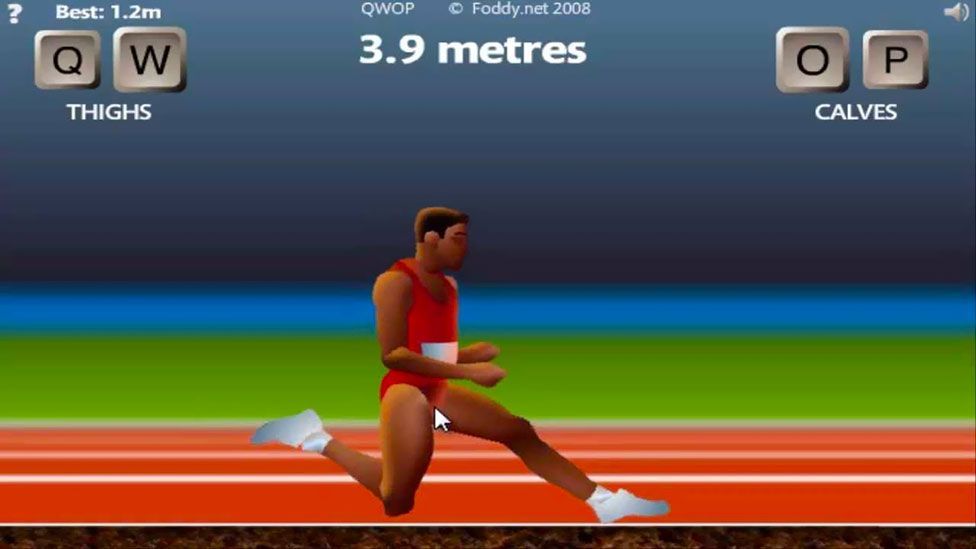
In QWOP, you must control all four limbs of an athlete, but many players find the task hilariously difficult (Bennett Foddy)
Foddy believes that more complex humour, such as parody, is also increasingly possible in video games because the medium is now decades-old. "Now that games are an established cultural form, players have a huge set of entrenched expectations; it's possible to surprise the player as a form of comedy," says Foddy.
Might a professional comedian agree? "It's rare that a video game really makes me laugh," says Peter Serafinowicz, the British actor and comedian. Still, he agrees that the best humour comes from subversions of player habits. He recalls loving the way that a 1990s cartoon adventure game called Sam & Max cartoon adventure game would crack jokes based on the way you controlled its characters.
"You would click on an object and the character would say: 'I can't do anything with that.' You'd click on it again and he'd say: 'I still can't do anything with that.' And so on, with a fresh quip for each time you interacted with the item. That's the kind of joke that can only exist in a game, where the character is commenting on your actions," says Serafinowicz.
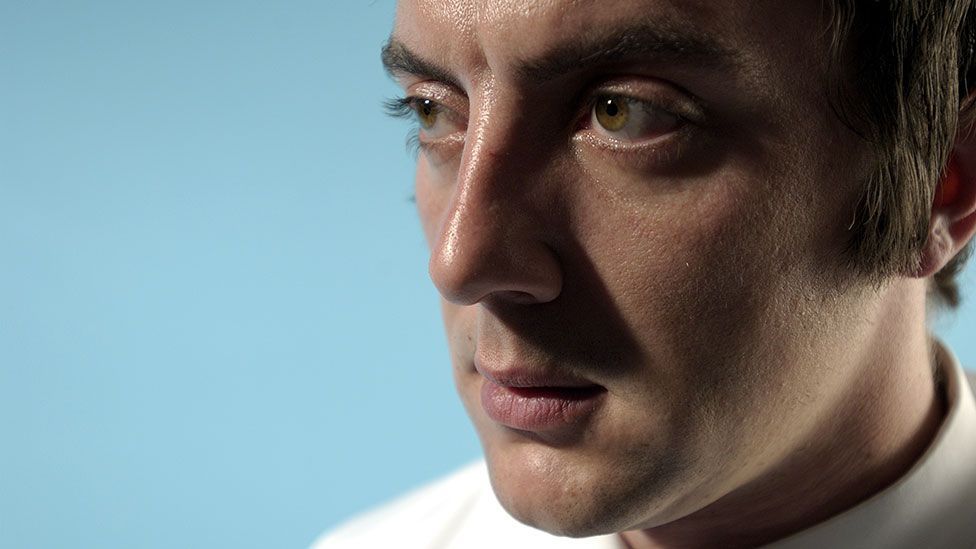
Comedian Peter Serafinowicz argues that the best video game humour comes when characters crack jokes based on the way you're controlling them (BBC)
That Serafinowicz is forced to reach back as far as 1993 for an example of a game that has made him laugh is revealing. For Ian Bogost, professor of Interactive Computing at the Georgia Institute of Technology and creator of Cow Clicker, a satirical Facebook game, part of the problem is that video game humour has, to date, been rather narrow in style. "The vast majority of comedy in games seems to be either slapstick and wordplay, or satire and parody," he explains. "We haven't tried very hard, collectively, to explore the application of comedy to games and the examples we do have get old rather quickly."
Still, Bogost admits that there have been some concerted attempts to explore different types of comedy in recent times. "We can see the rise of dark comedy and observational comedy in games," he says. For example, in the game Cart Life, you play street vendors with mundane jobs, and in Papers, Please, you act as a border inspector checking paperwork. In both games, the joke is that you role-playing somebody with a soul-crushingly boring job, rather than, say, a soldier or racecar driver.
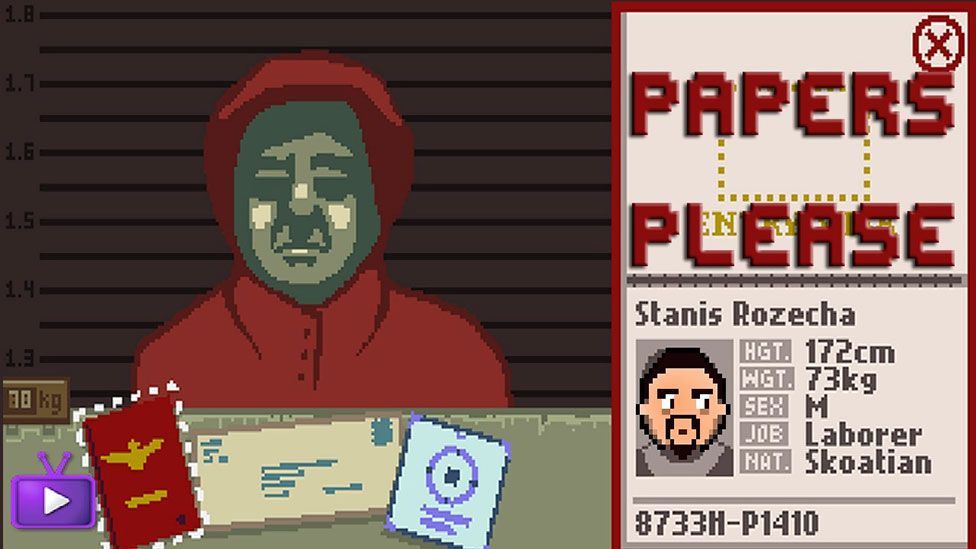
In the video game Papers Please, the joke is that the scenario - doing paperwork at a border crossing - is skull-crushingly boring (Lucas Pope)
Bogost also points to the comedy that can arise from programming glitches and errors. Indeed, unintentional humour in games appears to have a peculiar type of potency today. Consider one popular video compilation of glitches from the game Skate 3. It shows a character appearing to break the laws of physics, such as melding into the ground or floating in the air. This isn't supposed to happen, a fact that has amused many players – the video has been viewed more than 3.6 million times on YouTube (see video, below).

This video is no longer available
"Games are often unintentionally funny, in the way that any piece of complex engineering can be unintentionally funny," explains Foddy. He cites another example from the narrative game Facade. It has experimental artificial intelligence to enable conversation with the characters, but it occasionally goes awry. For example, one of the characters acts offended if you type the word "melon", because the AI interprets it as a euphemism for breasts.
Indeed, Foddy had planned to revisit his game QWOP, in order to fix its bugs and graphics, but changed his mind. "After some time passed I started to feel that the humour rests pretty strongly on the unintentional, unfinished look of the whole thing. If it was polished it would seem like it was trying too hard."
The element of spontaneity introduced by bugs and glitches is particularly effective in video games, perhaps because it's immediate and unplanned. Plotted comedy in games, by contrast, is far slower to deliver. "If there's one thing that makes it hard to pull off comedy in a video game, it's that making them is so slow," says Foddy. "Even in big-budget comedy movies, the actors are improvising on set, making each other laugh. To just get one little thing to happen in a videogame takes hours. It's difficult to be spontaneous."
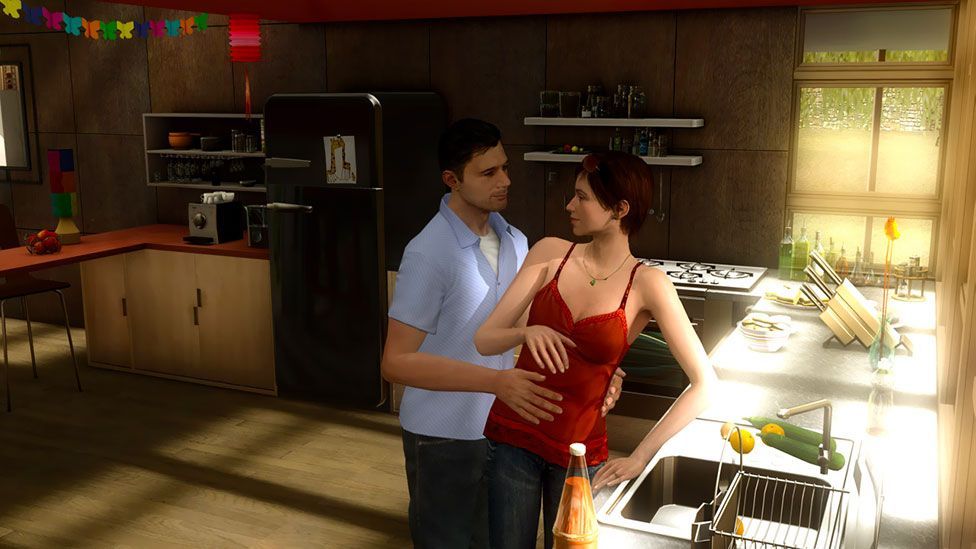
Heavy Rain is intended to be a serious game, but some sequences - such as laying plates for dinner - can be subverted by acting childishly
The player's agency to mess with a scene can, however, be a tremendous source of humour. When players subvert austere, big-budget video games with flippant behaviour the tone-altering results can be hilarious, argues Foddy. He cites an early scene in the game Heavy Rain as his own favourite humorous moment in a video game.
"There's this moment when the lead character's wife asks him to set out the plates for dinner, and you have to move the gamepad's stick gently so as not to damage the plates," he recalls. "I found the whole situation preposterous, so I deliberately started trying to fail the sequence by bashing the plates on the table. Ethan's wife just admonishes him, again and again, screaming: 'Ethan!'
"In the next scene, you have to rotate the stick 360 degrees to get him to kiss her, but you can get really close and then wind it back, over and over, yelling 'PSYCH' at the TV screen. It's amazing."
Funny? As is the case with a lot of humour, perhaps you just had to be there.
If you would like to comment on this, or anything else you have seen on Future, head over to our Facebook or Google+ page, or message us on Twitter .
comedy in video game design
Source: https://www.bbc.com/future/article/20140320-are-these-video-games-funny
Posted by: hookerlikedy.blogspot.com

0 Response to "comedy in video game design"
Post a Comment